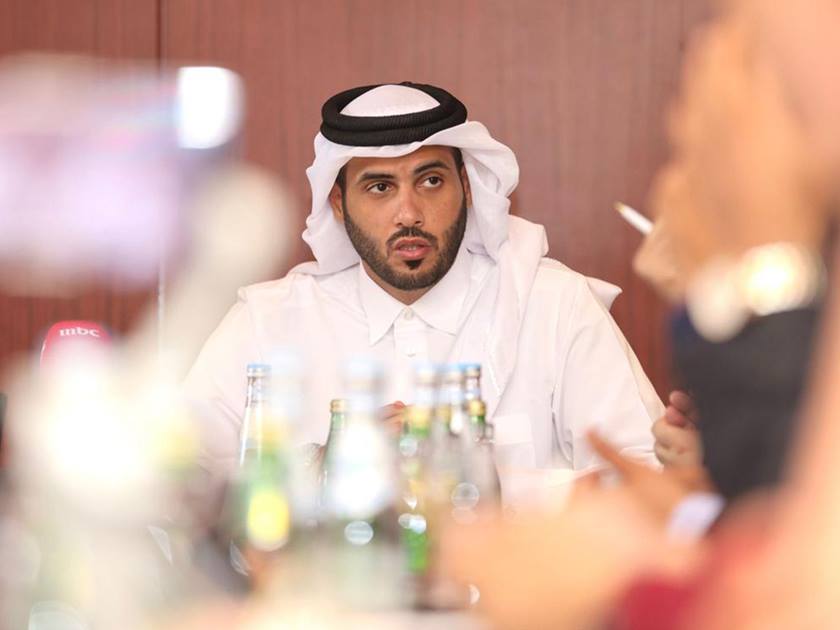Qatar was the third Asian nation, after Japan and South Korea, to host the World Cup in 2022 and its new venture includes hosting the 2023 Asian Cup for the third time in its history.
Qatar is not just the sports capital of Asia but the globe, a top sports official said on Wednesday, just months after hosting historic World Cup in 2022.
“Qatar is not only the sports capital of the continent but the country has become sports capital of the world especially after hosting a historic FIFA World Cup,” AFC Asian Cup Qatar 2023 CEO Jassim Abdulaziz Al Jassim told reporters.
The CEO of the Local Organising Committee (LOC) continued to state that by carrying on the legacy of its historic hosting of the FIFA World Cup 2022, Qatar is still dedicated to preserving the heritage of the continental competition because it sees it as a crucial component of their long-term plan.
Following the success of Qatar 2022, the Gulf nation is now prepared to host the upcoming 2023 AFC Asian Cup, which will begin on 12 January to February 10, 2024 across eight stadiums including six that were used during the World Cup.
Speaking on the eve of the Asian Cup Final Draw, which will take place at the Katara Opera House on Thursday, Al Jassim said Qatar promises a memorable Asian Cup.
He pointed to its wealth of experience in organising major sporting events effectively as well as its state-of-the-art infrastructure.
“We want to carry the World Cup legacy forward by hosting a successful tournament in terms of best venues, infrastructure and organisation,” said Al Jassim.
Qatar 2022 venues which will also host the Asian Cup matches include Al Janoub Stadium, Al Bayt Stadium, Ahmad Bin Ali Stadium, Al Thumama Stadium, Education City Stadium and Khalifa International Stadium.
Jassim Bin Hamad Stadium and Abdullah Bin Khalifa Stadium are also among the stadiums confirmed by the AFC.
“For the first time in history, Asia’s crown jewel will be staged in FIFA World Cup stadiums, and we know that our teams and players are eager to showcase their talent in some of the world’s finest sporting arenas,” said AFC President Shaikh Salman bin Ebrahim Al Khalifa.
Sticking to the very nature of legacy, Al Jassim noted that Doha has future intentions of hosting renowned competitions even after the Asian Cup, building on the legacy of Qatar 2022.
“I think right now we are first seeing the legacy of the World Cup already from an infrastructure, human resource, and sustainability perspectives. Six out of eight stadiums will be used for Asian Cup and I don’t think Qatar would stop with the Asian Cup from an infrastructure perspective,” he was quoted as saying by reports.
“So everything was planned based on legacy. As you see, the metro doesn’t reach all the stadiums because for legacy purposes, it did not fit […] I think we are already living the legacy of the World Cup and after that, we would be easily living the legacy of the Asian Cup.”
“I think it was the right decision to bring the tournament and I don’t believe this is the last tournament Qatar will be hosting,” the sports official maintained.
The 2022 World Cup in Qatar was deemed to be an enormous success authorities in the Gulf state are now looking towards the flagship continental competition.
Qatar previously hosted the Asian Cup in 1988 and 2011.
“So, from a technical perspective, all the teams stay in one hotel. Not needing to leave or travel between hotels. From the teams’ perspective, it gives them a base to play very good football. From a weather perspective, it will be 20 to 24 degrees Celsius during January and February,” Al Jassim said:
“So the stadium, the facility and the turfs which we take very good care of will be perfect. From a planning perspective and from a case of technical perspective I think it will be a very good Asian Cup.”
Hosts Qatar will be placed in Pot 1 of the AFC Asian Cup 2023 alongside a competitive set of teams from around the continent. Al Annabi will sit with four-time winners Japan, three-time champions Iran, two-time winners Korea Republic, and 2015 champions Australia and Saudi Arabia.
Pot 2 will feature Iraq, the UAE, Oman, Uzbekistan, China, and Jordan.
In Pot 3, Bahrain, Syria, Palestine, Vietnam, Kyrgyz Republic, and Lebanon will contend against one another for the lotus flower trophy.
Sitting in Pot 4, India, debutants Tajikistan, Thailand, Malaysia, Hong Kong, and Indonesia will also battle it on the field.







